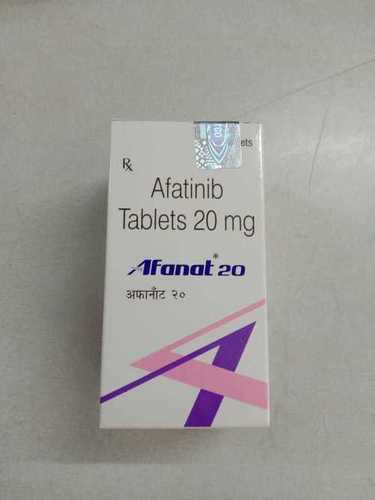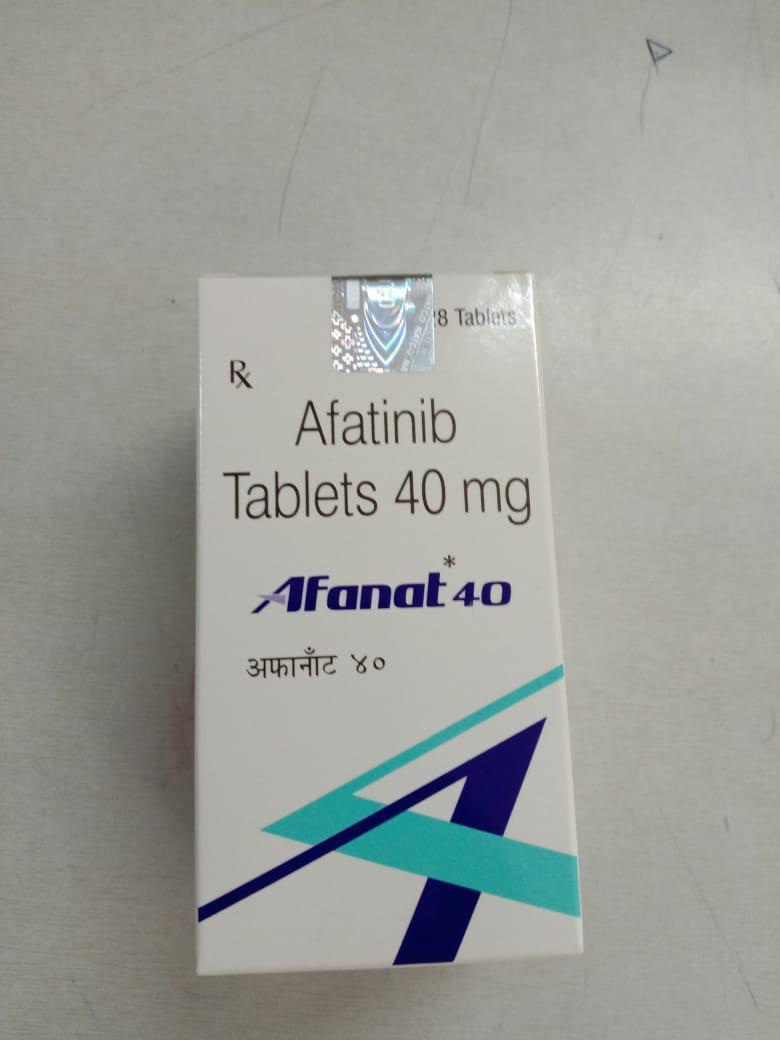Afatinib Tablets
Price 3000.00 INR/ Piece
Afatinib Tablets Specification
- Dosage Form
- As Per Suggestion
- Origin
- India
- Feature
- Other
- Application
- Other
- Temperature Needed For Fermentation
- 25 Celsius (oC)
- Storage Instructions
- Cool & Dry Place
Afatinib Tablets Trade Information
- Minimum Order Quantity
- 10 Pieces
- Payment Terms
- Telegraphic Transfer (T/T)
- Supply Ability
- 10 Pieces Per Day
- Delivery Time
- 10 -12 Days
- Packaging Details
- 30 TABS
- Main Export Market(s)
- Western Europe, Australia, North America, Eastern Europe, Middle East, Central America, South America, Asia, Africa
- Main Domestic Market
- All India
About Afatinib Tablets
Some key points about Afatinib tablets include:



Price:
- 50
- 100
- 200
- 250
- 500
- 1000+
More Products in Anti Cancer Injection Category
Irinotel Injection
Price 950 INR / Unit
Minimum Order Quantity : 10 Units
Storage Instructions : Cool & Dry Place
Dosage Form : As Per Suggestion
Origin : India
Ingredients : Other
PEGASTA 6mg PFS Injection
Price 3900 INR / Unit
Minimum Order Quantity : 10 Units
Storage Instructions : Cool & Dry Place
Dosage Form : As Per Suggestion
Origin : India
Ingredients : Other
Wepox 10000 Injection
Price 2400.0 INR / Unit
Minimum Order Quantity : 10 Units
Storage Instructions : Cool & Dry Place
Dosage Form : As Per Suggestion
Origin : India
Ingredients : Other
Bevacizumab Injection
Price 35120 INR / Pack
Minimum Order Quantity : 1 Piece
Storage Instructions : Cool & Dry Place
Dosage Form : As Per Suggestion
Origin : India
Ingredients : Other

 Send Inquiry
Send Inquiry Send Inquiry
Send Inquiry




